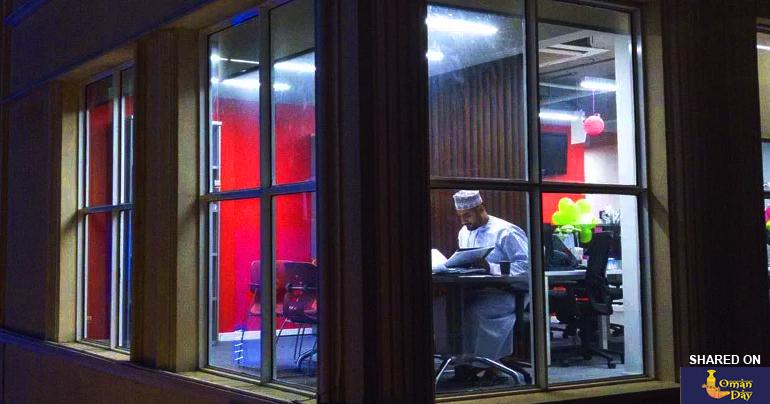Let’s talk about workplace depression in Oman
Unforgiving bosses, impossible tasks and mounting targets. Piles of work that don’t get finished even when you toil for 12 hours a day. Workplace disgusts are driving employees into depression and drugs in Oman. Alvin Thomas follows the trail of tears
Ageism, gender bias, bullying and ever-increasing workloads are driving employees mad. At least that’s what young marketing executive Fatma al Lawati (name changed to protect identity) who works with one of Oman’s leading banks believes.
The 24-year-old joined the bank fresh after graduating from a university in 2016. First on her list of priorities was repaying the loan she had taken to pursue her degree.
During a recent interaction with Y outside of her working hours, Fatma tells: “My prayers were answered when I got the job at the bank. The pay wasn’t good, to be honest, but it covered the education loan I had taken from the same bank.
“I was a young, passionate and energetic employee at first – and I had fulfilled my dream of making my own money. I was even promoted twice in my first 16 months after I hit my targets, from a junior to my current position as a marketing executive. But that meant I was given almost impossible targets (to catch new clients).

But the over-achieving Omani woman soon realised that with greater power came greater responsibility. And for Fatma, her responsibilities grew further than her span – and that meant she carried work home, dedicating up to 12 hours a day to complete her tasks.
“One of my college professors had told me that anyone who opts to work for a corporate firm is signing their soul away to the company. I remember laughing at that then,” she reminisces.
“It has been a while since I have smiled like a normal human being.
“Work, work and work: That is my life now. I even asked to be demoted to my previous position but my immediate boss said it was either my current job or nothing. And ever since that conversation, his attitude towards me has changed for the worse.
“Of late I have been holding as many as over 12 meetings with clients, following which I will also have to take care of existing clients,” she exclaims, before telling me that she could be receiving and making over 60 calls in a single day.
“Everybody tells me that it’s wise not to show your emotions at work. But inside my head, I’m in pain and there’s a little version of me screaming and crying with pain and agony.
“I know that it takes a lot to succeed in life and that we must all work hard to do so, but …”
Her words deeply moved us, forcing us to connect her with one of the leading mental health wellness institutions in the Sultanate – The Whispers of Serenity Clinic.
While Fatma may have found respite and possibly a solution to her worries, several others – tens of thousands – continue to bottle up their emotions and their pains go unnoticed.
But is occupational stress affecting the employees and employers in Oman? And if so, is it prevalent to such an extent that it must be brought into
the limelight?
A serious problem
Depression falls into the category of cognitive, emotional, and social impairments (CESI).
During an in-depth conversation with Y, Dr Amira al Raaidan, the director for health education and awareness programs, and head of the mental health department in the Ministry of Health, says: “Just like every other country, people in Oman undergo problems arising from workplace stress. And among the main problems is depression and anxiety. Both are very dangerous and need to be treated adequately and on time to avoid complications that may arise from these two conditions.”
Depression stemming from work is simply termed ‘workplace depression’ – and is becoming an area of increasing concern. And according to mental health website, PsychCentral, it is defined as the state of mind that arises when an employee is depressed in the workplace.
When an employee is depressed, it can affect the employee’s productivity, and mental and physical well-being. In some cases, it can also affect the mood of their co-workers too.
“Depression and anxiety can arise from various factors,” says Dr Amira. “It can be from a tough employer or boss, strict deadlines, relationship problems and many other factors.
“By 2020, depression will become the biggest form of mental health illness. That’s a sign that things need to be done and that we need to take care of the well-being of these people who are suffering.”
She’s not wrong. Statistics in a report published in the Oman Medical Journal of 2017 states that there are signs that depression is on the rise in Oman.
STATISTICS OF DEPRESSION
“Currently, when we speak about workplace depression, anxiety and stress, we usually relate with employees and office-goers. Certain jobs require more monitoring and it can take a toll on the person who is presented with the task.
And when it happens on a more frequent basis, it can affect his or her health,” Dr Amira says.
While signs of depression in children can be bed wetting, biting nails and aggression, adults exhibit symptoms more differently, the doctor explains.
The signs of an adult suffering from anxiety or depression can be irritation, aggression, mood swings, restlessness, emotional instability, pessimism and hopelessness.
While these can hamper one’s mental health drastically, studies point out that occupational depression and anxiety can also lead to other health problems.
Dr Amira adds: “One suffering from these conditions can experience other problems and diseases like obesity, hypertension, heart diseases, diabetes and, in some cases, substance abuse.”
...[ Continue to next page ]
tag: oman-news , daily-oman
Share This Post






